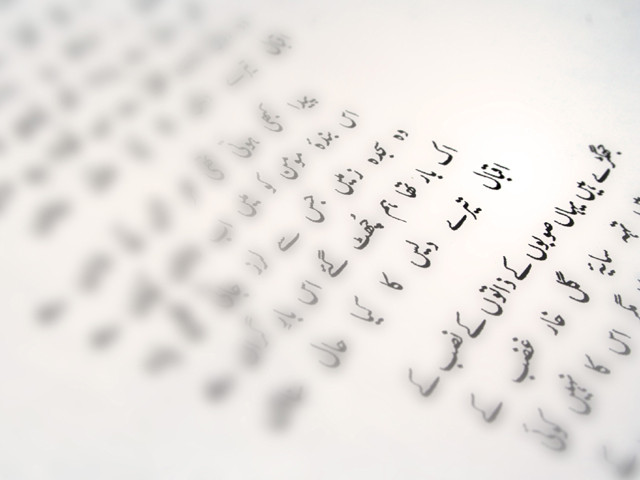Urdu and Beyond: How not to limit the poet, writer or language to an ideology
Dr Haq claims that post-modernism presents old ideas as new.

How can Urdu literature make a comeback?
Well, according to Prof. Dr Nomanul Haq, if Urdu literature wants to survive then it should rehabilitate itself and connect with contemporary works from other cultures. “If a country or an economy chooses isolation then it will only wither on the peripheries,” said Dr Haq, a senior faculty member at the Lahore University of Management Sciences.
While speaking at a session on ‘Changing Paradigms of Literature: Urdu and Beyond,’ at the third Karachi Literature Festival on Saturday, the Islamic history scholar and professor had a few observations to share.
The professor regretted that during the year-long centennial celebrations for Faiz Ahmed Faiz, no one spoke about his poetics. He said that instead they focused on his ideology, socio-political commitments and his populist movement. “I am not as naive as to suggest that a poet is not affected by his or her environment,” he said. “When literature transcends the socio-political, physical, ideological, boundaries then even William Shakespeare and Allama Iqbal can sit, talk and make sense to each other.”
He added that the idea that an utterance or text has a specific meaning had to be destroyed. “You can’t pin a creation down to religion or political scenario to interpret work,” he said. “It undermines the integrity of the work. The work is not considered on its own as a separate creation.”
He continued to expand on his theory and said that the idea might spring from nature but the work needs to make sense on its own terms. “Literature is not a representation but a creation,” he said. “Fiction involves distorting some reality and characters to fix the narrative because it needed to stand on its own to make sense.”
He read aloud excerpts from Charles Dickens, Shakespeare, Mir Taqi Mir, Faiz and Iqbal. While talking about Iqbal, he said that he was the worst victim of his own message. He added that in trying to grasp his message, people had limited his poetry and undermined its true essence.
He blamed post-modernism for pinning everything down to a specific thought. He claims that post-modernism just presents old ideas and theories as new. He concluded the session by emphasising the need to ‘re-position, rehabilitate and not dislocate Urdu literature to make it more relevant.’
The session was moderated by Bilal Tanweer, a translator and short story writer. Professor Muhammad Omar Memon, a renowned literary figure and the co-founder of an online Urdu magazine, Annual Urdu Studies, was also present.
Published in The Express Tribune, February 12th, 2012.


















COMMENTS
Comments are moderated and generally will be posted if they are on-topic and not abusive.
For more information, please see our Comments FAQ